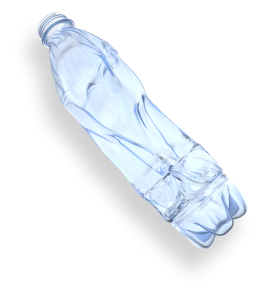Our Sustainable actions
Trymbo Lulu supported a roadmap
Reviving Nature After the Storm
4 months agoplastic recovered
Recovery Entity supported
Trymbo Lulu supported a roadmap
Increase collection volume and washing
4 months agoplastic recovered
The new washing machine will also directly create 10 new green jobs, further supporting COLIBA’s commitment to social inclusion by integrating more informal waste pickers into its formal workforce. This not only enhances operational efficiency but also strengthens the livelihoods of local communities.
In addition to operational improvements, this initiative underpins COLIBA’s educational efforts, which aim to reach an additional 2,000 students, fostering a deeper understanding of sustainability and the importance of waste management.
By funding this essential equipment, you will be contributing to a tangible solution that scales recycling rates, creates meaningful employment, and drives environmental education, making a lasting impact on both the planet and local communities.
Recovery Entity supported
Trymbo Lulu supported a roadmap
Capacity, capacity, capacity to recover more
about 1 year agoplastic recovered
Our current collection vehicle is a lovely three-wheeler with fun cartoons on it. But as lovely and fun looking it is as much of a strain it is to operate it profitable.
The calculation is easy - At maximum capacity the value of the plastic waste transported must be more than the cost of operation. Sadly, prices of waste plastic are still too low in Sri Lanka to make that calculation work. At the moment it only makes sense for us to run the vehicle because we can recycle some of the plastic waste in house and generate more value per weight.
We do have buyers for all types of plastics, even nylon waste fishing gear but to collect waste material in bulk our payload must increase.
The next larger vehicle that would secure the profitability of our operation would be a single cab Bolero pick up and has a price of approximately $15,000 USD and part of the financing will come from the sale of our current three-wheeler.
Furthermore, a larger vehicle will not only secure the workplaces of our staff members but also create new workplaces in sorting and processing. Considering Sri Lanka’s economic situation, we believe it is very important to provide more work in the country and avoid Sri Lankans going abroad for work, leaving their family behind.
So, in the end it is not only about capacity but also our staff, staff, staff. If we want to retain dignified jobs in waste management in Sri Lanka, we need to keep staff from leaving the country. Capacity = retained staff = good work that keeps the environment clean and increases recycling rates of all plastics.
Recovery Entity supported
Trymbo Lulu supported a roadmap
#PLASTICFREEOCEANS
about 1 year agoplastic recovered
It is estimated that nowadays less tan 1.5% of this waste is recycled (The Ocean Cleanup), not only one of the most abundant plastic waste in our oceans but also the worst for marine life.
From Gravity Wave we’ve been facing up this problem in the Mediterranean Sea since 2020. First, by collaborating with both traditional fishermen and companies, we collect all kinds of plastic from the sea (including discarded fishing nets from fishing ports). In a second stage, as Gravity Wave, we are specialized in the recycling of those ghost and discarded fishing nets.
To this day, we have already achieved to create a stable recycling process to transform PE fishing nets into beautiful furniture, but we are always under continuous R&D processes that allow us to recycle both more types of nets (different types of nets, different plastics, different recycling needs) and in larger volumes.
These funds will help us to take our industrial recycling tests one step further. One step more towards one of our main purpose:
“Move those plastics and fishing nets away from our oceans and transform them into valuable raw material for the industry”.
Join the movement and support us for a #PLASTICFREEOCEANS
Recovery Entity supported
-
Roadmap
Jove supported a roadmap
Education and communication for more opportunities
almost 2 years ago1 kgplastic recovered
91 / 20,000 kgThe resources will be used in communication and environmental education campaigns in Costa Rica, so that consumers learn how to deliver materials to the collection centers and that way increase the volume of plastic recovery before it reaches landfills or water sources.
You can help us strengthen the value chain of our allies, the grassroots recyclers, giving priority to those centers that are led by and employ more women. In these cases, we will be able to offer better purchase prices and provide them with technical support for their own business expansion plans.
Our measure of success will be the number of people sensitized to the process and the increase in tons of plastic material for recycling that reaches our value chain. We will be able to measure this because we keep detailed control of the material received from each collection center.




